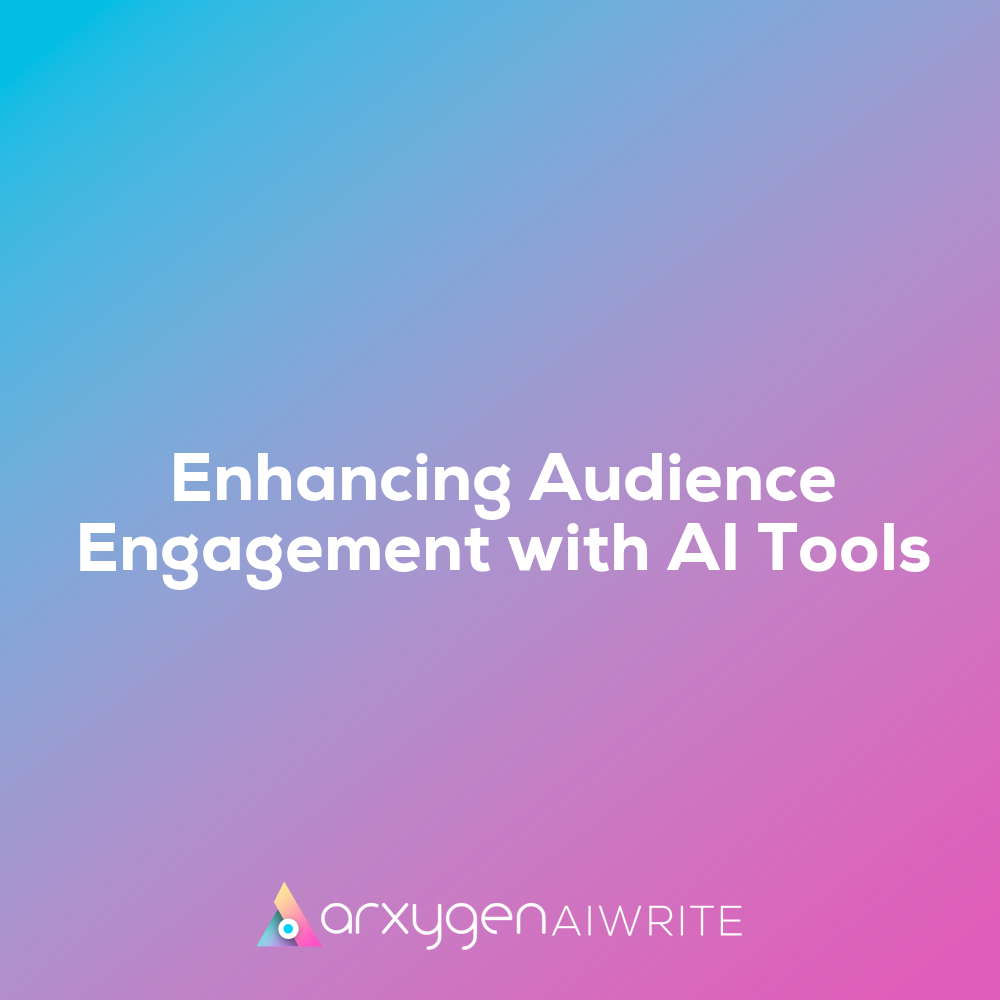Exploring the Impact of AI on Personalised Audience Engagement
In today’s digital landscape, personalisation has become a cornerstone of user experience and brand loyalty. Audiences are increasingly seeking tailored interactions that resonate with their individual preferences and needs. AI plays a pivotal role in this transformation by analysing vast amounts of data to create bespoke experiences. For instance, when a streaming service recommends shows based on previous viewing habits, it not only enhances user satisfaction but also fosters a deeper connection with the platform.
Moreover, the ability of AI tools to scrutinise audience behaviour allows brands to fine-tune their content strategies effectively. By identifying patterns in user interactions, businesses can deliver relevant messages at optimal times. This proactive approach not only improves engagement rates but also cultivates trust among consumers, who feel understood and valued. Imagine receiving an email that highlights products you’ve been eyeing; it feels personal and intentional.
Additionally, AI’s predictive analytics can forecast future behaviour based on historical data. This means that brands can anticipate what their audience might want next, creating a sense of anticipation and excitement. For example, an e-commerce site might suggest complementary items during checkout, enhancing the shopping experience and increasing sales. Such strategies demonstrate how AI not only reacts to user behaviour but actively shapes it.
Furthermore, the integration of AI chatbots has revolutionised customer service by providing immediate assistance tailored to individual queries. These intelligent systems learn from each interaction, becoming more adept at addressing specific concerns over time. This level of responsiveness significantly boosts customer satisfaction and encourages loyalty.
As brands continue to harness the power of AI for audience engagement, the emphasis on personalisation will only intensify. Consumers are no longer satisfied with generic content; they crave experiences that reflect their unique identities and preferences. By leveraging AI-driven insights, businesses can create compelling narratives that resonate deeply with their audiences, fostering long-term relationships built on understanding and trust.
Effective Techniques for Strengthening Audience Engagement with AI
In the rapidly evolving digital landscape, integrating chatbots and virtual assistants has proven invaluable in cultivating real-time communication with audiences. These AI-driven tools not only facilitate instant responses but also create personalised interactions that resonate with users on a deeper level. For instance, a well-implemented chatbot can guide customers through complex queries, ensuring they feel heard and valued during their online experience.
Moreover, numerous organisations have successfully harnessed AI to revolutionise their audience interactions. A notable example is a leading e-commerce platform that utilised machine learning algorithms to analyse customer behaviour and preferences. This allowed them to tailor recommendations, significantly enhancing user satisfaction and engagement rates. Additionally, businesses employing virtual assistants have reported increased conversion rates as customers receive timely assistance while navigating their services.
These case studies illustrate how AI is not merely a tool for efficiency but a catalyst for meaningful connections. By fostering an environment where users feel understood and appreciated, brands can build loyalty and trust that transcends transactional relationships. As technology continues to advance, the potential for AI to enhance audience engagement will only grow, paving the way for innovative strategies that redefine communication in the digital age.
Exploring the Ethical Dimensions of AI in Audience Engagement
As artificial intelligence continues to reshape how brands connect with their audiences, the ethical implications surrounding its use are increasingly under scrutiny. The potential for AI to manipulate consumer behaviour raises significant questions about transparency and consent. For instance, when algorithms tailor content to individual preferences, how much control do users truly have over their experiences? Trust becomes paramount; audiences must feel secure that their data is being handled responsibly and ethically. If brands fail to uphold this trust, they risk alienating their audience, leading to a backlash that could undermine engagement efforts.
“Trust becomes paramount; audiences must feel secure that their data is being handled responsibly and ethically.”
The Future of Personalised User Experiences through AI
Looking ahead, emerging AI technologies promise to further enhance the personalisation of user experiences. Imagine an online shopping platform that not only remembers your past purchases but also anticipates your needs based on seasonal trends and social influences. This level of customisation could make users feel understood and valued, fostering deeper connections. However, with such tailored experiences comes the challenge of maintaining a balance between personalisation and privacy. Users may appreciate recommendations but could feel uncomfortable if they perceive the technology as invasive. The evolution of AI engagement will hinge on finding innovative ways to personalise without compromising user autonomy. Ultimately, the brands that successfully navigate these complexities will be those that build genuine relationships with their audiences, ensuring that trust remains at the forefront of their engagement strategies.

